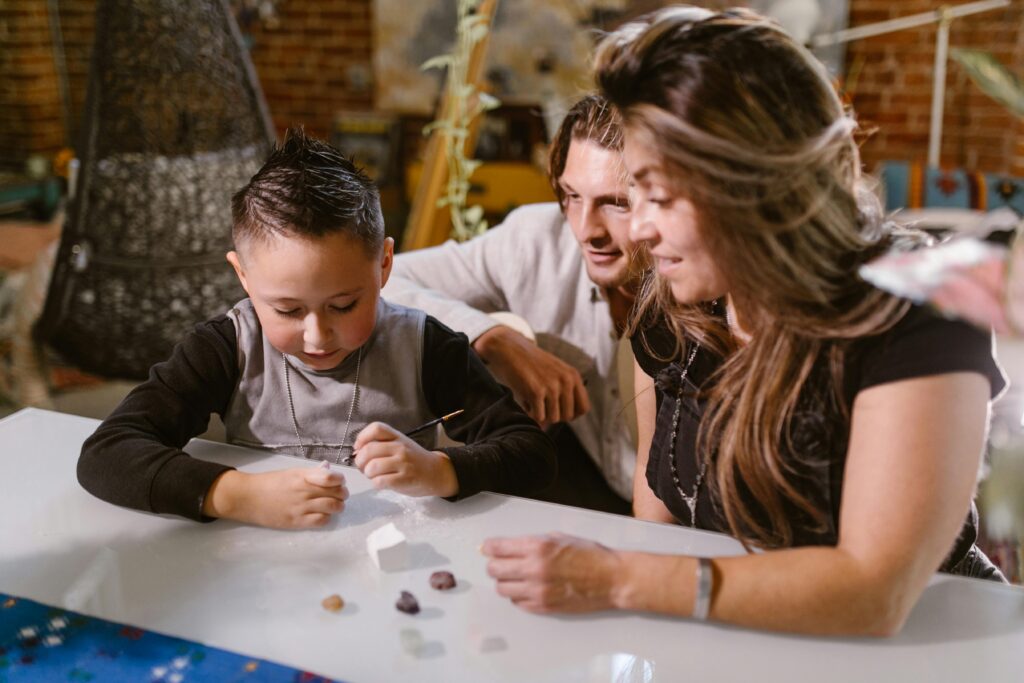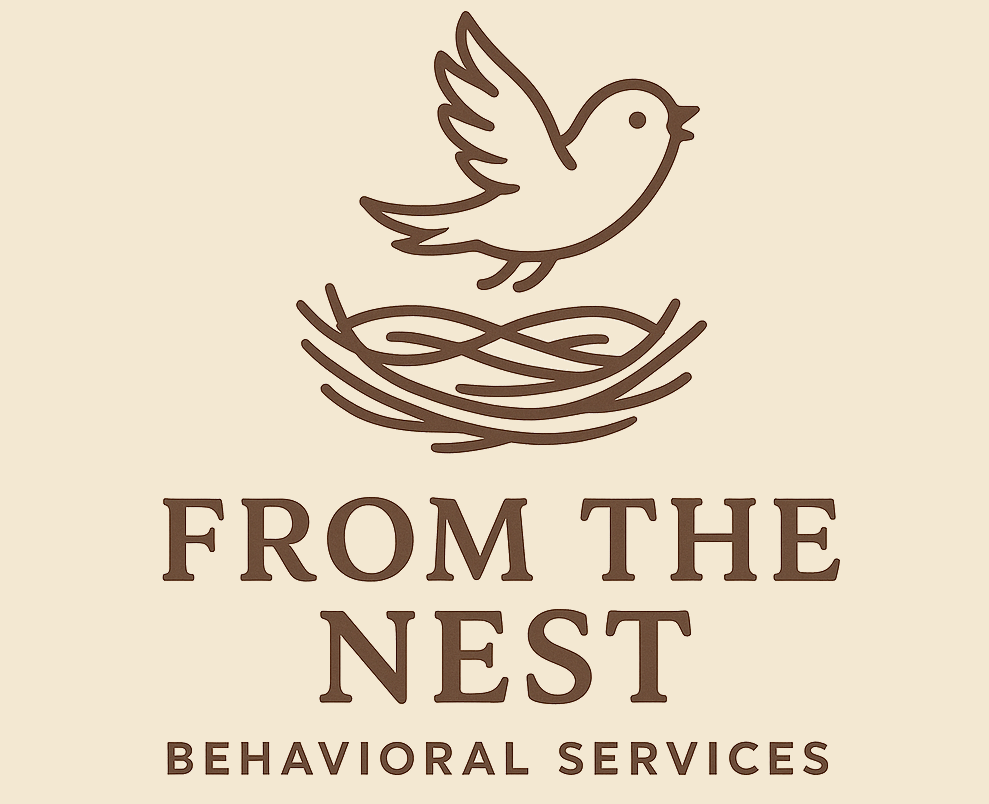
Direct ABA Therapy
What is ABA Therapy?
ABA therapy, or Applied Behavior Analysis, uses scientific evidence to build skills. Although the concepts and techniques used in ABA can be effective across individuals, it has been considered the “golden standard” for learners with autism. Quality ABA providers focus on promoting the learner’s unique skills and personality, self-advocacy, special interests, and general wellbeing.
For more information about ABA, check out our recent blog posts.
What to Expect
ABA therapy with From the Nest Behavioral Services is provided by a behavior technician or Registered Behavior Technician (RBT) and can range from about 10 to 30 hours per week. While most services are home-based, therapy can also be provided in community settings, daycares, and schools when appropriate and approved by your insurance provider. The technician is overseen at least weekly, though often more frequently, by the master’s level clinician, the Board-Certified Behavior Analyst (BCBA). In these overlap sessions, the BCBA will review your child’s progress toward current goals, provide feedback and oversight to the technician, and test and update teaching procedures so that the most ideal training methods are being used at all times.
Following an initial assessment, your BCBA will meet with you to discuss their findings, how many hours of weekly therapy they recommend, and what goals they recommend starting with according to your child’s needs and your family’s values.

Here are just a few of the ways ABA therapy can be structured:
- 12 hours per week of teaching a 10-year-old how to pitch in with in household responsibilities, complete hygiene tasks independently, and participate in family game nights by taking turns, tolerating losing, following rules independently, and allowing others to have the first choice of game piece
- 20 hours per week of working with a 5-year-old on expanding their communication, following simple single-step instructions, tolerating waiting for food to cool, playing with limited supervision when mom is on the phone, and building the social skills to make friends in kindergarten
- 8 hours per week with a 13-year-old developing conversational skills and understanding of facial expressions, body language, figures of speech, and others harder to read social cues, which expands over time to novel opportunities to make sure skills generalize, or can be used across people and places, like at a park, in the library, at an after-school club, or when a another child is over for a playdate

Now partnered with Alpaca Health!
Complete our ABA intake form to schedule a FREE Q&A consultation and your child’s ABA assessment, the first steps toward getting started with us!
